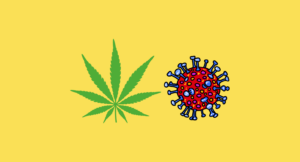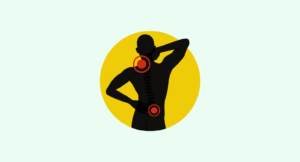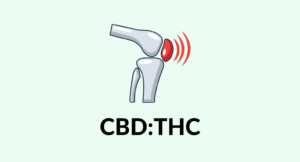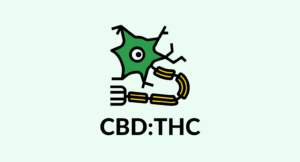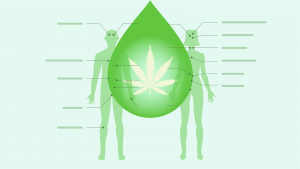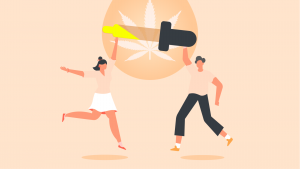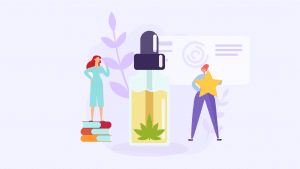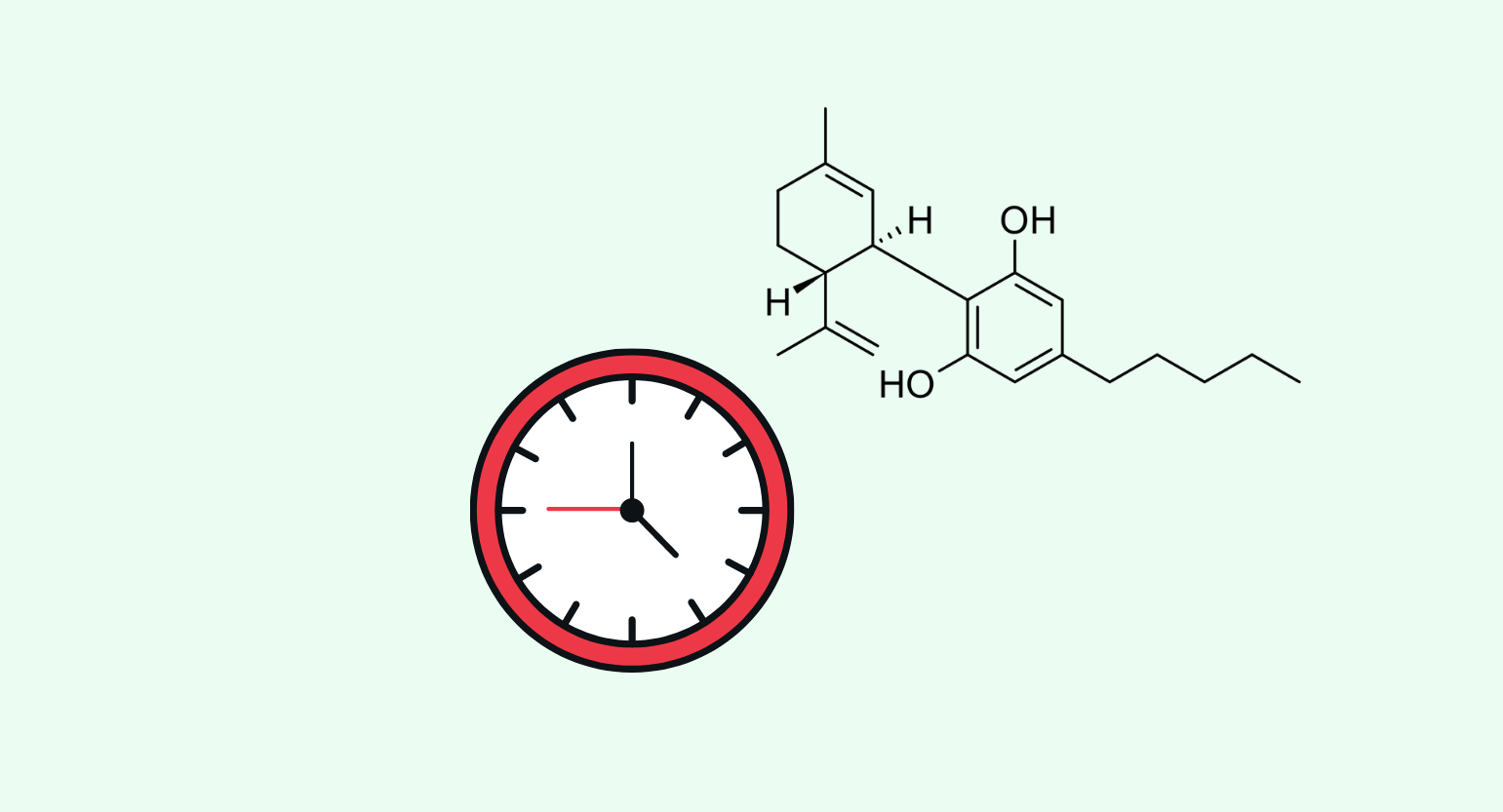
Evidence based
How Long Does it Take For CBD To Work?
How long does it take for CBD oil to work, and how long does it last? CBD offers a wide range of health benefits, from blocking pain to alleviating anxiety.
CBD (cannabidiol) offers some of its benefits immediately (about 15 to 45 minutes after taking it) — other benefits require much more time, such as several days or weeks.
In this article, we’ll break down all the factors that affect how long it takes for CBD oil to work for various conditions.
You’ll learn how CBD is absorbed, how to make CBD act faster, and what you should expect while using CBD for some of the more challenging symptoms like chronic pain.
CBD Absorption: How The Type of CBD Product Affects The Onset
Onset is a term used to describe the amount of time it takes for a compound to take effect.
Most oral supplements require at least 30 minutes to work because they need to be absorbed through the digestive tract first. Inhalation is faster because the active ingredient travels directly into the bloodstream through the lungs.
This is due to the difference in bioavailability between these different forms of administration.
In layman’s terms, bioavailability is the term used to describe how efficiently a substance is absorbed when it enters the body.
The higher the bioavailability, the faster a substance will be absorbed, and the more prominent the effects will be.
Substances with a low bioavailability will take longer and feel weaker.
Bioavailability may also affect how long CBD stays in your system.
Let’s compare the main forms of administration, going from the fastest onset to the slowest:
- Inhalation (vaping and smoking CBD)
- Sublingual (CBD oil absorbed under the tongue)
- Oral consumption (CBD eaten as an oil, capsule, gummy, or other edible)
- Topical (fast onset but only applies to the skin and muscles)
1. CBD Inhalation: Fast Onset Time
There are a few ways to inhale CBD — the most common are CBD vapes and smokable hemp flowers (including hemp cigarettes, dry herb vapes, and pre-rolls).
Inhalation is the most bioavailable form of CBD on this list. It hits the fastest (within about 5 minutes), feels the strongest, but doesn’t last as long as other forms of administration.
The general timeline for inhaled CBD is as follows:
- Onset time — first effects felt within 5 minutes
- Peak effects — maximum effects reached around 20 minutes
- Total duration — 2 or 3 hours in total
When CBD is inhaled as vapor or smoke, it’s absorbed through the alveoli in the lungs. This makes for almost immediate onset of effects because the CBD is absorbed directly into the bloodstream (no digestion or first-pass metabolism).
You can expect noticeable effects within five to 15 minutes of taking a hit of CBD from a vape. However, although the onset of effects is fast, the longevity isn’t, wearing off after only an hour and a half.
CBD vape pens are fantastic if you require immediate pain relief, but if you’re looking for something to keep you going all day, keep in mind you’ll be hitting the vape every one to two hours.
It’s recommended to combine vapeable CBD with another form for the best balance between fast-acting effects and sustained relief.
2. Sublingual CBD (CBD Oil Under the Tongue): Moderate Onset Time
CBD oil has relatively high bioavailability when used sublingually. This means holding the oil under your tongue for a minute or two before swallowing it. The CBD absorbs directly into the bloodstream through a network of tiny capillaries close to the surface.
Using this method, you can feel the effects of CBD far more quickly than gummies, capsules, and other edibles.
The general timeline for sublingual CBD is as follows:
- Onset time — first effects felt within 20 minutes
- Peak effects — maximum effects reached around 1 hour
- Total duration — 3 to 5 hours in total
Also see: What Does CBD Feel Like?
2. CBD Edibles (Gummies & Capsules): Slow Onset Time
Oral CBD, such as gummies and capsules that come in pill-form and softgels are similar in terms of bioavailability. This is because both formats must pass through the digestive tract to be absorbed.
Edibles and capsules don’t have a quick onset as the sublingually absorbed CBD oil. However, the effects may last longer.
The general timeline for oral CBD is as follows:
- Onset time — first effects felt between 1 and 1.5 hours
- Peak effects — maximum effects reached around 2 hours
- Total duration — 5 to 8 hours in total
4. CBD Topicals: Fast Local Onset
CBD topicals are completely different from the other consumption formats on this list.
They aren’t ingested, sublingually absorbed, or inhaled. Instead, they are applied to the skin, where they can be dermally absorbed (absorbed through the skin).
Topical CBD takes just a few minutes to start exerting its effects, but it will only affect the area it’s applied to directly. When using topicals for the skin, the effects are very quick (around 10 minutes or less), but the deeper the source of the issue, the longer it takes to work.
For example, if using topicals to alleviate joint pain from osteoarthritis (which originates from inside the joint), you may have to wait 30 minutes to an hour to feel the effects. Joint pain from rheumatoid arthritis is felt more quickly (20–45 minutes) because the source of the pain is closer to the surface of the skin.
The longevity of effects will also depend on the specific product and the skin condition. It’s difficult to provide a specific timeframe because it depends on the other ingredients in the formula. Waxy topicals tend to last longer (3 or 6 hours), while more cream-based topicals fade out slower (between 2 and 3 hours).
The general timeline for topical CBD is as follows:
- Onset time — first effects felt between 20 and 60 minutes
- Peak effects — maximum effects reached around 30 to 90 minutes
- Total duration — 2 to 6 hours in total
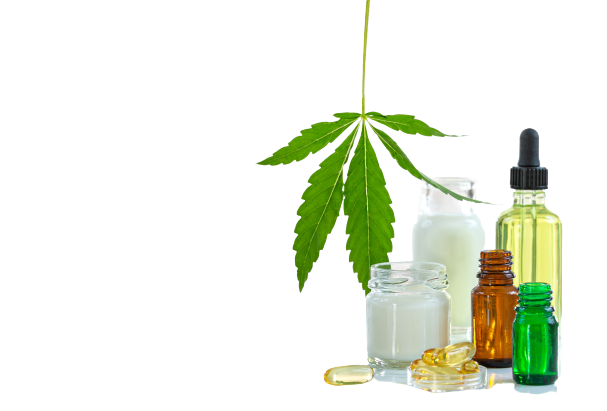
CBD Onset Time For Specific Conditions
The time it takes for CBD oil to work can depend on the condition it’s used for. CBD has the potential to reduce pain, inflammation, and mental health problems. The onset times for these different treatments can vary.
It’s also important to note that everyone reacts differently to CBD and other cannabinoids. The time it takes for CBD to work for one person can change dramatically to another, so take these onset times with a pinch of salt. You may notice effects sooner or later than these timeframes.
In general, we can break down the onset time for CBD into two categories:
- Acute Effects — this refers to the immediate effects of CBD from a single dose. This includes effects like pain relief, anxiety relief, or sedative effects.
- Chronic Effects — this refers to the effects of CBD that develop over repeated doses. These effects happen gradually as CBD promotes healing over several days, weeks, or months.
How Long Does it Take for CBD Oil to Work for Joint Pain?
The acute effects of CBD usually kick in immediately, depending on the type of CBD you’re using. For oils, expect results in about 15 or 20 minutes (sublingual administration).
The long-term effects should start to kick in after around five days of use. These effects involve a gradual reduction in pain, improvement in joint mobility, and reduction in swelling.
Different types of joint pain and the severity of the condition can both affect the amount of time it takes CBD to work.
In general, you can expect faster acute effects from CBD for rheumatoid arthritis (1–2 hours) but slower healing of the joint (2 weeks of consistent use or longer).
For osteoarthritis, it’s the opposite — acute effects take longer, but you’ll notice a general improvement in the condition much sooner (one or two weeks).
How Long Does it Take for CBD Oil to Work for Sleep?
The effects of CBD on sleep are very fast — one dose is enough for most people to feel the improvements.
However, CBD works differently for everyone. Some people report that CBD helps induce sleep dramatically from one dose, while others report having to use CBD for a few days before noticing many benefits.
You can expect to notice sleepiness within one to two hours of consuming CBD oil before bed.
The effective dose of CBD for sleep sits between 3 and 8 mg per 100 pounds of body weight. If the CBD isn’t taking effect, a higher dose may be needed. You can expect to notice the sleep-inducing effects to kick in around an hour after CBD oil is applied sublingually.
When using CBD oil for sleep, it’s important to get relaxed and consume the oil one to two hours before you plan on sleeping. This allows your body to relax fully and prepare for sleep. Practicing relaxation before bed alongside taking CBD is key for seeing results.
How Long Does it Take for CBD Oil to Work for Anxiety?
The fast-acting anti-anxiety effects of CBD can be noticed in as little as five minutes after the first dose when inhaled and about 60 minutes if using CBD orally.
CBD vape pens are the best option for acute anxiety — such as social anxiety or panic attacks — because the effects appear almost instantly (within about 5 minutes).
Sublingually absorbed CBD oils and tinctures are perfect for treating anxiety on a daily or recurring basis. Over the course of several days, weeks, or months, you should start to notice the intensity of your anxiety symptoms decreasing as well.
Related: CBD Oil for Bipolar Disorder: Does It Help, Dosage, & How to Use.
How Long Does it Take for CBD Oil to Work for Skin Irritation?
The best way to treat skin irritation using CBD is by using topicals. Creams, balms, and roll-ons may help reduce swelling, ease irritation, and reduce localized pain.
You should notice skin irritation start to reside within 20 minutes to one hour after the topical is applied to the skin.
However, CBD topicals may not work for all skin conditions, and for some, an oral method of consumption is required alongside the topical to fight the irritation from two angles.
How Long Does it Take For CBD Oil To Work For Pain
CBD works differently for chronic pain (long-term, persistent pain) than it does for acute pain (pain that occurred suddenly due to injury).
For acute pain, the benefits are felt immediately from one dose. You just have to wait the standard amount of time for the form of administration you’re using (fast onset for vapes, slower onset for oils and edibles).
Chronic pain can take longer to benefit from CBD. You may notice some immediate improvement right away, but the more significant, long-lasting pain relief can take several days or weeks of consistent use.
CBD can take longer for chronic pain because it needs to heal the underlying cause of the pain — such as chronic inflammation, scar tissue, or muscle tension.

Onset Times For CBD Extracts
There are three main types of CBD extract — full-spectrum, isolate, and broad-spectrum.
Each one differs in the make-up of their cannabinoid profiles. Some extracts contain CBD only, some contain a full cannabinoid profile similar to the raw plant, and others contain a full cannabinoid profile minus any THC (tetrahydrocannabinol).
All of these other compounds (especially the cannabinoids and terpenes) can affect the amount of time it takes for CBD to work.
1. CBD Isolate: Slower Onset
CBD isolate is a pure extract of CBD — nothing else. No other cannabinoids, terpenes, or any other hemp derivatives.
An isolate has a slightly different onset experience than other extract types because of this lack of other ingredients.
Some of the other compounds in broad-spectrum or full-spectrum products improve the bioavailability of CBD and therefore have a faster effect. This is down to something called the entourage effect [1].
2. Broad-Spectrum CBD: Moderate Onset
Broad-spectrum CBD contains cannabidiol as well as all of the other naturally-occurring cannabinoids and terpenes found in hemp except for THC.
Broad-spectrum extracts are great for people that want to benefit from the entourage effect to some degree but don’t want to consume any THC due to sensitivity or drug screening issues.
Broad-spectrum CBD is considered to have a faster onset time than CBD isolate but slower than full-spectrum. The difference here is very subtle — most people won’t be able to tell the difference.
However, there is a relatively big jump in terms of potency when you move from CBD isolate to broad-spectrum, followed by another jump to full-spectrum products.
3. Full-Spectrum CBD: Faster Onset
Full-spectrum extracts that contain high concentrations of terpenes are going to have the fastest onset of effects overall. Many of the terpenes in cannabis work to improve absorption of other active ingredients — providing faster and longer-lasting benefits.
This type of CBD extract contains THC — but only in trace amounts.
This amount of THC is not enough to get “high” from, but the trace amount may show up on drug screening for regular users.
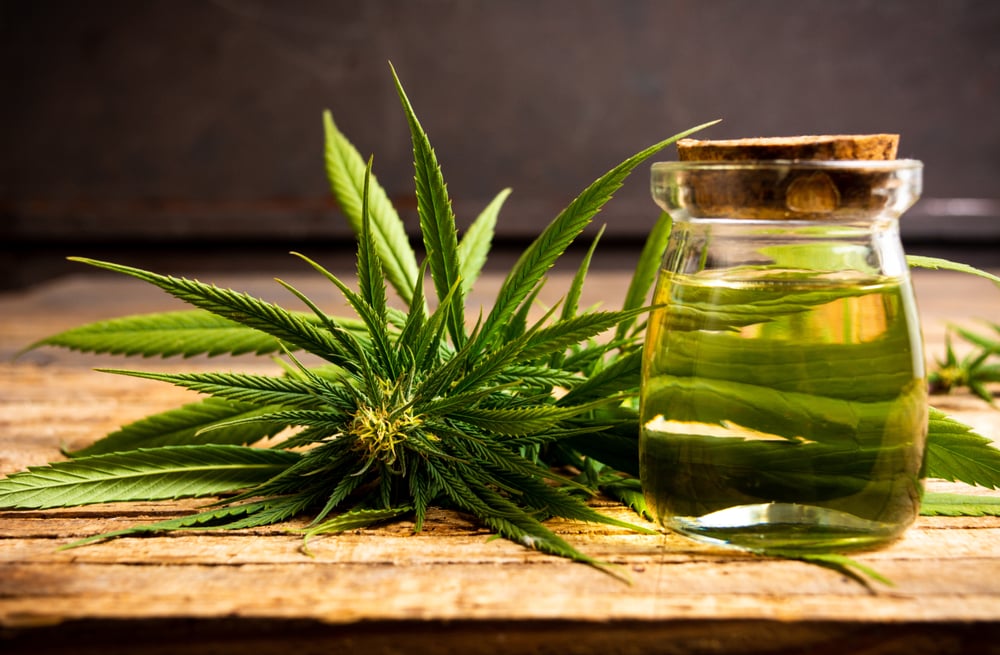
Bottom Line: How Long Does it Take for CBD Oil to Work?
The time it takes for CBD to work is affected by a variety of factors. The type of CBD used and the consumption format used will affect how long it takes to work. Inhalation is the fastest, followed by sublingual consumption with CBD oil and edibles or other oral forms of CBD taking the longest.
The condition you’re aiming to support, and the severity of symptoms can affect the amount of time you need to wait for CBD to take effect as well. More severe or chronic conditions take the longest, with milder or more acute symptoms requiring less time to clear up.
References
- Russo, E. B. (2019). The case for the entourage effect and conventional breeding of clinical cannabis: no “strain,” no gain. Frontiers in plant science, 9, 1969.
- Hammell, D. C., Zhang, L. P., Ma, F., Abshire, S. M., McIlwrath, S. L., Stinchcomb, A. L., & Westlund, K. N. (2016). Transdermal cannabidiol reduces inflammation and pain‐related behaviours in a rat model of arthritis. European Journal of Pain, 20(6), 936-948.
- Blessing, E. M., Steenkamp, M. M., Manzanares, J., & Marmar, C. R. (2015). Cannabidiol as a potential treatment for anxiety disorders. Neurotherapeutics, 12(4), 825-836.
- Palmieri, B., Laurino, C., & Vadalà, M. (2019). A therapeutic effect of CBD-enriched ointment in inflammatory skin diseases and cutaneous scars. Clin Ter, 170(2), e93-e99.
